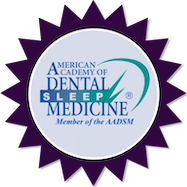Symptoms and Causes of Sleep Apnea
We know that the most common form of sleep apnea is obstructive sleep apnea. This means there is a blockage of the breathing passage or a collapsed airway. And when your airway is blocked, it causes difficulty in breathing.
When you are sleeping, your muscles relax, narrowing your throat. However, that doesn’t mean that the air won’t flow into and out of your lungs. However, if you suffer from sleep apnea, that is when blockage will occur. When you suffer from sleep apnea, your airway will become partially or fully blocked. This often occurs because your:
- Throat muscles and tongue relax more than normal.
- Tongue and tonsils are larger than to the opening into your windpipe.
- Weight is considered overweight.
- Head and neck shape may cause a smaller airway size in the mouth and throat area.
- Age limits brain signals’ ability to keep your throat muscles stiff during sleep.
When your airway is partially or fully blocked during sleep, not enough air flows into your lungs. This leads to loud snoring and a drop in blood oxygen level, which means treatment is vital to protect yourself and your health.
Who is at Risk for Sleep Apnea?
Patients with obesity are often the most at risk for experiencing sleep apnea. This can be attributed to excess tissue placing pressure on the airway. More than half of those diagnosed with sleep apnea have also been diagnosed with obesity or are overweight. This is an issue that is extremely important to address and often requires lifestyle changes in addition to treatment with oral appliance therapy or CPAP.
Your risk for developing sleep apnea continues to increase with weight gain and age. You are also at a higher risk if you have diabetes or are a smoker. Additionally, if you have a constricted shape or small size nose, mouth or throat, it can also increase your risk for sleep apnea.
Allergies and other medical conditions can also cause issues along the airway that restrict the flow of oxygen. On the other hand, though, sleep apnea is often more common in men than women, as well as African Americans, Hispanics and Pacific Islanders than Caucasians. Sleep apnea can even occur during pregnancy and following menopause, so pay close attention to your symptoms.

Contact Us Today
Our Hours:
Monday: 8am-5pm
Tuesday: 8am-5pm
Wednesday: 8am-5pm
Thursday: 8am-2pm



